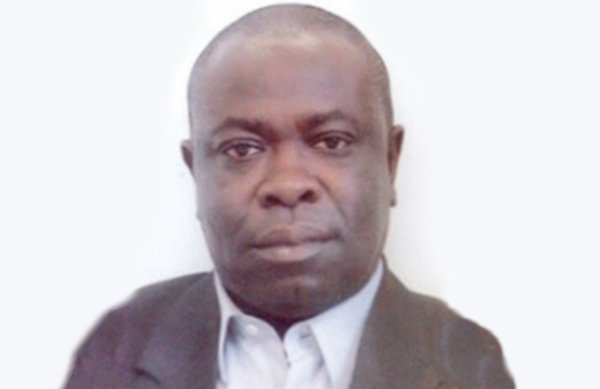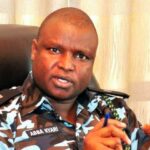
The Nigerian political elites appear to have broadly agreed on one thing; that it is desirable for the next president of Nigeria to emerge from the southern part of the country. This is based, in their view, on the need for ‘fairness, and equity.’ Furthermore, since Nigeria will have been governed by a president from the northern part of Nigeria for eight years by 2023, the informal and unofficial zoning formula dictates that power should “shift” to the South for its own eight years in office. This much was reaffirmed at the meeting of the Southern Governors’ Forum, which was held at the Lagos State Government House, Ikeja, Lagos State, on July 5, 2021. The governors unanimously agreed, inter-alia; “that the presidency of Nigeria be rotated between Southern and Northern Nigeria and resolved that the next president of Nigeria should emerge from the Southern Region.” To an observer with a sense of history, this seemingly innocuous declaration (or communique), is the modern-day repudiation of the amalgamation of Southern and Northern Nigeria by the British in 1914. Prior to that, Southern and Northern Nigeria had existed as separate and distinct entities with virtually nothing in common aside from their colonial ties to Britain.
The British had tried to govern, and indeed governed, Nigeria as a single entity from the 1914 historic amalgamation, right through to independence in October 1960. What happened in-between, is the (still unfolding) story of Nigeria. How do you forge a national identity from two disparate regions in a way that gives everybody a stake in it? Yes, it is a forced union but mergers of territories throughout history are invariably forced in order to coalesce around a bigger union. The United States is a prime example, where the union of the states was enforced initially by bloodshed. Not all the states in the union wanted to be together, especially the (slave-owning) southern states. It took a bloody civil war (1861-1865) to quell their rebellion. But, eventually, the ideals of America as a Republic, where individual liberty forms the bedrock of society, and where the constitution provides the bulwark to tyranny, became the blueprint for the United States of America. It is then left to each generation to build a “more perfect union.” “Four score and seven years ago our fathers brought forth on this continent, a new nation, conceived in Liberty, and dedicated to the proposition that all men are created equal,” Abraham Lincoln, the United States President (1861-1865) stated in “The Gettysburg Address,” November 19, 1863. “Now we are engaged in a great civil war, testing whether that nation or any nation so conceived and so dedicated can long endure…,” he added.
Lincoln, of course, paid the ultimate price for his conviction and belief in the ideal of a United States governed by law. He presided over and valiantly prosecuted the war against the armed insurrectionists, who did not buy into his vision of “government of the people, by the people, and for the people.” He was assassinated in 1865. But his ideal has lived on and has been copied by nations all over the world. So, what is the significance of this for Nigeria? Nigeria has been fighting its own ‘civil war’ since the amalgamation of 1914. The war was kept in check by the superior force of the British but, at the same time, their colonial presence provided a unified front for both the Southern and Northern territories to fight against. The British kept Nigeria together not only by force of arm but by the tactic of divide and rule. The colonial government aligned itself more favourably with the Northern political elite. It viewed the Southern political elite as ‘agitators’ and ungrateful ‘malcontents,’ who wanted them out of Nigeria quicker than the Northern region had intimated. Prior to independence, in the 1950s, the ‘civil war’ between the Southern and Northern territories became more and more an open conflict. The 1960 independence for Nigeria brought about a truce but not an end to regional hostility and ethnic animus. The civil war that later blew open in 1966 came as no surprise to anyone. A 32-year-old Colonel in the Nigerian Army, Yakubu Gowon, from the Northern part of the country, quickly found himself in the saddle as head of state, with the opportunity to replicate Lincoln but he did not. He could not.
Gowon saw his mission as only to secure the unity of Nigeria, and the flow of oil, under one central authority, cemented by balkanising the hitherto powerful regions. This was to be overseen by a mighty, powerful centre, called the Federal Government. To the extent that there has not been another open rebellion since Gowon’s “no victor, no vanquished” mantra in January 1970, he could rightly be viewed as a war hero but he is no Lincoln. Yes, Nigeria has been kept together as one entity but the civil war between the regions has persisted. Democratic politics has merely interrupted and disrupted the war of attrition but it has not ended it. No one has yet come up with the Nigerian version of “The Gettysburg Address.” It is precisely because of this lacunae that the so-called power rotation between North and South has been agreed by the two major parties (the APC and PDP), as the basis for keeping a united Nigeria. The Southern Governors felt the need to reaffirm this because of the fear that some elements are actively seeking to jettison the gentleman’s agreement. The Southern Governors were wondering— since the north has had its two consecutive terms, why are candidates from the current president’s neck of the woods still touting their desire and credentials for the presidency for 2023? It has to be said that the stance taken by the Southern governors puts them at odds with modern, progressive, forward-looking democratic politics, which eschews ethnicity, religion or regional affiliation as a basis for attaining power. I want to be president of Nigeria because I am from the South is totally devoid of principle; it is grasping at straws.
That said, there is a widespread belief in the ranks of politicians from the North and South that the current President, Major General Muhammadu Buhari (retd.), has pandered too much to ethnic sentiments in his choice of personnel for key administrative positions and has not demonstrated with conviction that he is president for all Nigerians. The president and his ardent supporters would refute any such suggestion, of course. But, for argument sake, let us say Buhari has indeed widened the division between ethnicities through nepotism and short-sightedness. In that scenario, what does the interest of Nigeria dictate? Plan, plot and wait for your turn to ‘eat’ or articulate a better, superior vision for the country? What makes ethnicity such an endemic problem for Nigeria is the inordinate credence given to “state of origin” in official transactions, instead of the place of birth. While the place of birth might, one day, allow for the emergence of an ‘Ayomide,’ ‘Femi,’ ‘Abiodun,’ ‘Ike,’ Chukwuma,’ ‘Oghene,’ ‘Obong,’ etc, born and bred in the North, to stand for political offices as Northern candidates ditto ‘Salisu,’ ‘Ibrahim,’ ‘Waziri,’ ‘Shehu,’ ‘Usman,’ etc, born and bred in the South and standing as Southern candidates, the “state of origin” requirement would never allow for that to materialise. This is Nigeria’s unresolved nationality question. It is the Nigerian establishment itself that has connived to make ethnic identifiers a permanent feature of the people’s life. Who you are as an individual, and where you are going as a leader ought to matter more than where your ancestors come from. The political class in Nigeria ignores this at its own peril.
[email protected]
Copyright PUNCH.
All rights reserved. This material, and other digital content on this website, may not be reproduced, published, broadcast, rewritten or redistributed in whole or in part without prior express written permission from PUNCH.
Contact: [email protected]




